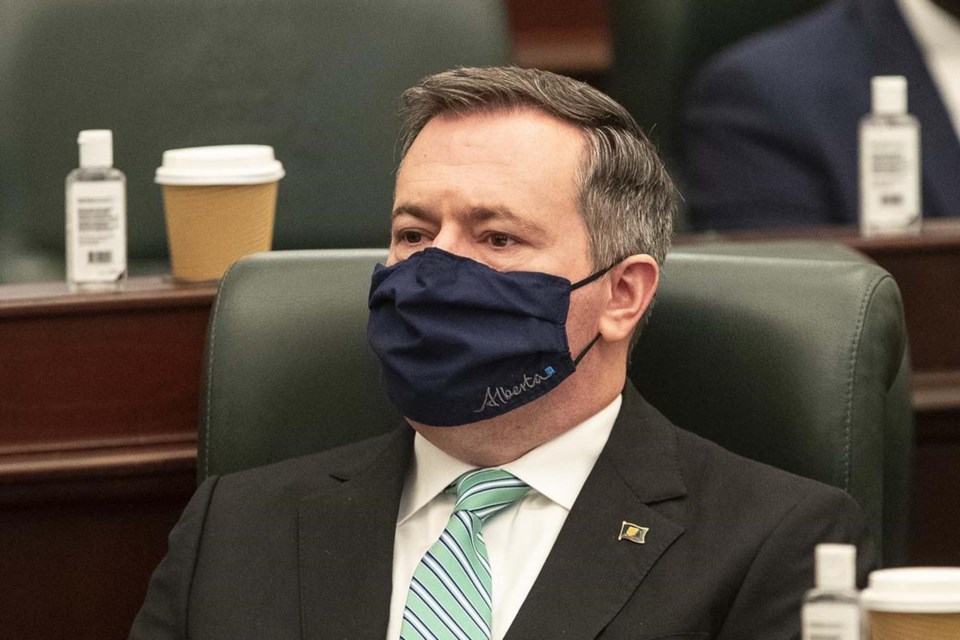EDMONTON — Alberta has introduced legislation that would allow citizens to organize petition drives to recall members of the legislature, municipal politicians and school board trustees.
United Conservative Premier Jason Kenney says the bill fulfils an election commitment “to make it clear that at the end of the day ordinary Alberta voters are the boss in our democracy.
“If they lose faith in their elected representatives ... they can hold them to account in between elections.”
The bill is based on the framework of similar legislation in British Columbia, which is the only other province with recall rules.
Kenney noted the Alberta version extends recall to elected municipal officials and school board trustees.
“Local property owners and voters deserve the same kind of accountability from their local councillors, mayors, and reeves,” the premier said before the bill passed first reading in the house Monday.
Interest in the bill was heightened after Christmas when several of Kenney’s caucus members, including a cabinet minister, were caught ignoring public health directives tied to COVID-19 and vacationed in sunny locales.
Under the bill, citizens who wanted to recall a legislature member for poor performance would have 60 days to gather signatures from 40 per cent of eligible electors.
If that threshold was met, it would trigger a constituency-wide referendum on whether to toss out the member. If a simple majority of voters agreed the member should be recalled, the MLA would be out of a job and a byelection would be triggered.
There would be a two-year window for petitions. They could only be organized 18 months after a general election and six months before the next one.
Alberta constituencies generally have a list of eligible voters that number around 33,000.
There would be a much higher bar for signatures to trigger a recall of a municipal politician.
Citizens could only garner signatures of eligible voters and the petition would have to reflect 40 per cent of all the people in a ward or municipality. That means organizers would have to get signatures from 80 per cent of all eligible voters to meet the threshold.
However, if they did, the politician would be automatically evicted.
For school trustees, a successful petition would need 40 per cent of eligible voters in a ward or municipality before the official was automatically out.
NDP Opposition critic Heather Sweet said the bill is a shell game that promises direct democracy but delivers something else.
“This bill imposes a series of hurdles so high that it becomes virtually impossible to use in the real world,” said Sweet.
Political scientist Duane Bratt said the bill properly sets a high bar for recalling a provincial politician.
“Recall is designed to be like the nuclear option. It should not be easy to do. It should be an outlet if there’s no other mechanism for it,” said Bratt, who is with Mount Royal University in Calgary.
“Just the serious formation of signature-gathering should be an important message to the MLA.”
Bratt questioned the recall rules for lower levels of government. He noted that they are already subject to scrutiny, oversight and provincial legislation to hold elected officials accountable.
The 40 per cent threshold could be more of a wild card in municipal politics, where participation can swing wildly from place to place, he suggested.
The bill reflects recommendations made last year by a legislature committee.
Representatives for the Alberta Urban Municipalities Association and Rural Municipalities of Alberta, in addressing that committee, questioned the need for the legislation.
They, too, noted there are already accountability rules for municipal elected leaders, and said recall legislation would be cumbersome and expensive. They also had concerns it could be used improperly by some parties as a way to harass and intimidate.
This report by The Canadian Press was first published March 15, 2021
Dean Bennett, The Canadian Press




